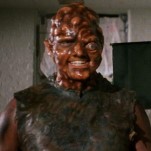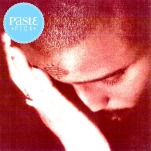Best New Albums: This Week’s Records to Stream
Tap in and find your next obsession.

Paste is the place to kick off each and every New Music Friday. We follow our regular roundups of the best new songs by highlighting the most compelling new records you need to hear. Find the best new albums of the week below, from priority picks to honorable mentions.
Case Oats: Last Missouri Exit
 Case Oats’ debut record, Last Missouri Exit, does not reinvent the wheel. But it isn’t trying to, nor does it need to. Frontwoman Casey Gomez Walker’s voice undoubtedly calls on the earnest plaintiveness of Mo Tucker, her songwriting brings to mind David Berman’s interpolation of lived-in specifics and heart-rendingly blunt self-analysis, and the instrumentation takes after Wilco (unsurprising, considering Spencer Tweedy is Gomez Walker’s fiancé and the band’s drummer). The record is squarely set in alt-country territory, yet it still feels fresher than a host of recent albums straining to claim some “lush” sound as invention. Case Oats aren’t forcing originality or fleeing lineage—they’re simply writing what they know, and in doing so, carve out something novel. It helps, too, that the band—Gomez Walker and Tweedy alongside Max Subar (guitar, pedal steel), Jason Ashworth (bass), Scott Daniel (fiddle), and Nolan Chin (piano, organ)—evidently view the Case Oats “sound” as malleable and ever-changing; not some static standard to meet. The album might not venture out of alt-country territory often, but that doesn’t mean there’s no exploration; it just goes for depth rather than breadth. Rather than spanning myriad genres, Case Oats instead takes listeners on a veritable road-trip through the entirety of alt-country and all its nooks and crannies. “Seventeen” is pure Kimya Dawson with its up-tempo melody and deadpan talk-singing. On the other hand, the twang and rhythm of “Bitter Root Lake,” a Dateline-inspired homage to the age-old folk tradition of the murder ballad, calls The Old 97s to mind. Time is, by nature, amorphous and life, by nature, finite. But on Last Missouri Exit, neither of those truths are greeted with fear. Even when facing down the barrel of life’s most notoriously terrifying constants, Gomez Walker barely flinches, instead embracing fate with open arms. The whole thing reeks of a kind of radical acceptance that, ironically, the ages the album reminisces on are defined by categorically refusing. When you’re 17, everything is alien and terrifying. But when you’re 30 singing a song you wrote in your twenties about how you felt at seventeen, the sharpness softens, deepens into something more layered. Like wine, some things just need to age. —Casey Epstein-Gross [Merge]
Case Oats’ debut record, Last Missouri Exit, does not reinvent the wheel. But it isn’t trying to, nor does it need to. Frontwoman Casey Gomez Walker’s voice undoubtedly calls on the earnest plaintiveness of Mo Tucker, her songwriting brings to mind David Berman’s interpolation of lived-in specifics and heart-rendingly blunt self-analysis, and the instrumentation takes after Wilco (unsurprising, considering Spencer Tweedy is Gomez Walker’s fiancé and the band’s drummer). The record is squarely set in alt-country territory, yet it still feels fresher than a host of recent albums straining to claim some “lush” sound as invention. Case Oats aren’t forcing originality or fleeing lineage—they’re simply writing what they know, and in doing so, carve out something novel. It helps, too, that the band—Gomez Walker and Tweedy alongside Max Subar (guitar, pedal steel), Jason Ashworth (bass), Scott Daniel (fiddle), and Nolan Chin (piano, organ)—evidently view the Case Oats “sound” as malleable and ever-changing; not some static standard to meet. The album might not venture out of alt-country territory often, but that doesn’t mean there’s no exploration; it just goes for depth rather than breadth. Rather than spanning myriad genres, Case Oats instead takes listeners on a veritable road-trip through the entirety of alt-country and all its nooks and crannies. “Seventeen” is pure Kimya Dawson with its up-tempo melody and deadpan talk-singing. On the other hand, the twang and rhythm of “Bitter Root Lake,” a Dateline-inspired homage to the age-old folk tradition of the murder ballad, calls The Old 97s to mind. Time is, by nature, amorphous and life, by nature, finite. But on Last Missouri Exit, neither of those truths are greeted with fear. Even when facing down the barrel of life’s most notoriously terrifying constants, Gomez Walker barely flinches, instead embracing fate with open arms. The whole thing reeks of a kind of radical acceptance that, ironically, the ages the album reminisces on are defined by categorically refusing. When you’re 17, everything is alien and terrifying. But when you’re 30 singing a song you wrote in your twenties about how you felt at seventeen, the sharpness softens, deepens into something more layered. Like wine, some things just need to age. —Casey Epstein-Gross [Merge]
Read: “Case Oats: The Best of What’s Next”
Dean Johnson: I Hope We Can Still Be Friends
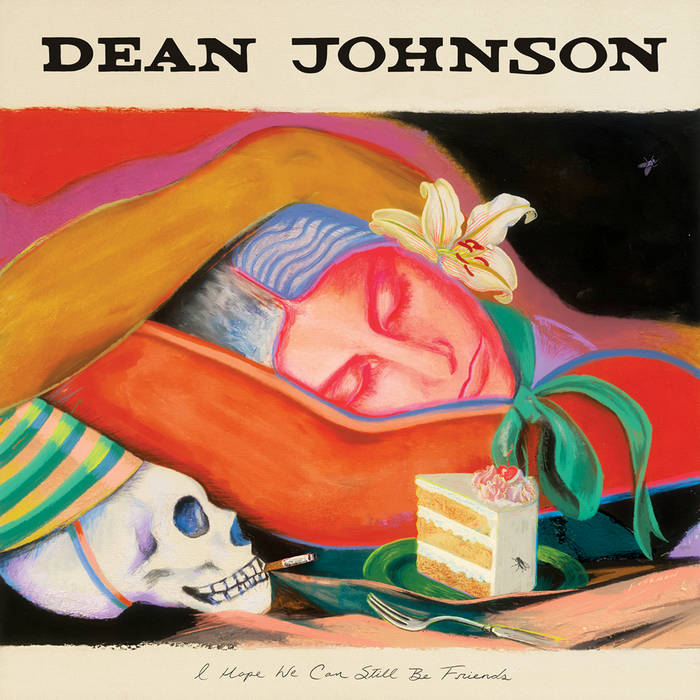 Like many great songwriters, Dean Johnson’s voice is universal, even if he’s only writing about what he knows. His music, rooted in country and Americana, sounds uncoupled from any one time or place, even if he’s a Seattleite through and through. On I Hope We Can Still Be Friends, Johnson’s second LP and first for storied indie label Saddle Creek, he’s drawing from the same well as writers like John Prine or Tom Waits, filtering the light of daily life through the grimy windows of a barroom. (In Johnson’s case, it’s the Wallingford tavern he tended for over a decade, absorbing the plights of boozers drowning their sorrows.) Everything is framed through the wreckage of unrequited love: depression (“Painted Smile”), rampant consumption habits (“Carol”), the sinister bliss of electro-convulsion therapy (“So Much Better”), the callouses we collect each passing day (“Shake Me”). Sometimes he writes metaphors about heartache, as on the shuffling “Long Winter”; other times, his heartache is itself a metaphor, like his words of wariness about the shallow, titular “Carol.” But Johnson never ceases singing the truth. It hangs onto every soft-spoken word that tumbles from his mustachioed mouth and falls, gracefully, onto his supporting chords. —Rob Moura [Saddle Creek]
Like many great songwriters, Dean Johnson’s voice is universal, even if he’s only writing about what he knows. His music, rooted in country and Americana, sounds uncoupled from any one time or place, even if he’s a Seattleite through and through. On I Hope We Can Still Be Friends, Johnson’s second LP and first for storied indie label Saddle Creek, he’s drawing from the same well as writers like John Prine or Tom Waits, filtering the light of daily life through the grimy windows of a barroom. (In Johnson’s case, it’s the Wallingford tavern he tended for over a decade, absorbing the plights of boozers drowning their sorrows.) Everything is framed through the wreckage of unrequited love: depression (“Painted Smile”), rampant consumption habits (“Carol”), the sinister bliss of electro-convulsion therapy (“So Much Better”), the callouses we collect each passing day (“Shake Me”). Sometimes he writes metaphors about heartache, as on the shuffling “Long Winter”; other times, his heartache is itself a metaphor, like his words of wariness about the shallow, titular “Carol.” But Johnson never ceases singing the truth. It hangs onto every soft-spoken word that tumbles from his mustachioed mouth and falls, gracefully, onto his supporting chords. —Rob Moura [Saddle Creek]
Read: “Dean Johnson: A Storyteller Hiding In Plain Sight”
Greg Freeman: Burnover
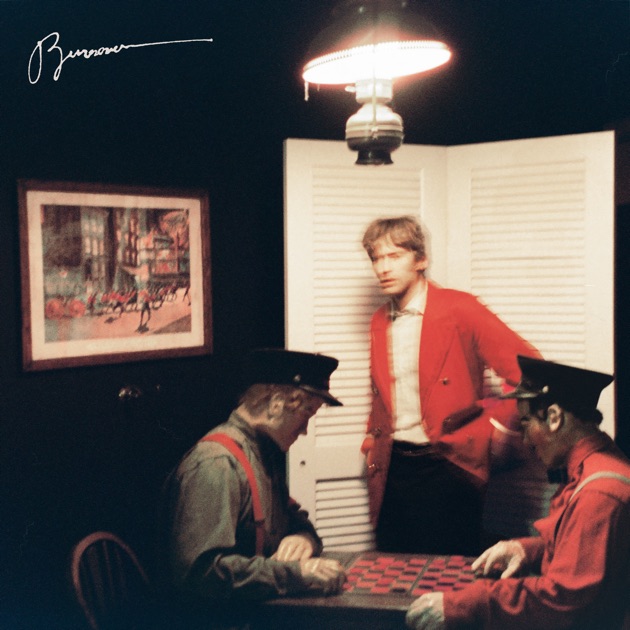 The best songs on Burnover are suffused with the same oversized emotions as I Looked Out, but they’re leaner, punchier, and brighter. These qualities sound like they’d make for an easy listen, which Burnover can be—it isn’t long before you’re bobbing your head along to the uncharacteristically lax piano jam “Rome, New York”—but even then, the music never lets you settle. As a composer and writer, Greg Freeman has only grown more restless and challenging: his grooves are blocky and slightly queasy; most lyrics demand close study to be properly digested; there aren’t really any choruses to bite into. Most songs, instead, patchwork together epic build-ups, breakdowns, and curious, interstitial interludes that would do the late Sparklehorse mastermind Mark Linkous proud. In particular, the lo-fi ballad “Sawmill” reminds me of Linkous’ collage-like approach; the song’s hollow-sounding vocals, frayed ribbons of violin, and garbled interpolation of a New York Times movie review wouldn’t feel out of place in one of Linkous’ own surreal, strangely tender love songs.
The best songs on Burnover are suffused with the same oversized emotions as I Looked Out, but they’re leaner, punchier, and brighter. These qualities sound like they’d make for an easy listen, which Burnover can be—it isn’t long before you’re bobbing your head along to the uncharacteristically lax piano jam “Rome, New York”—but even then, the music never lets you settle. As a composer and writer, Greg Freeman has only grown more restless and challenging: his grooves are blocky and slightly queasy; most lyrics demand close study to be properly digested; there aren’t really any choruses to bite into. Most songs, instead, patchwork together epic build-ups, breakdowns, and curious, interstitial interludes that would do the late Sparklehorse mastermind Mark Linkous proud. In particular, the lo-fi ballad “Sawmill” reminds me of Linkous’ collage-like approach; the song’s hollow-sounding vocals, frayed ribbons of violin, and garbled interpolation of a New York Times movie review wouldn’t feel out of place in one of Linkous’ own surreal, strangely tender love songs.
Glockenspiel and chimes shimmer atop the cacophonous midsection of “Wolfpine” like fairy dust, elevating the Neil Young-ish scorcher to the cosmos. The respective meltdowns of “Point and Shoot” and “Rome, New York” let compressed feelings finally explode from their confines, spilling suddenly into song. By the end of the former’s breakdown, Freeman is backed only by a screechy violin that drunkenly harmonizes with his parting statement: “She could see the frame, but never the picture / A live round spun, and a split-second flicker broke,” he sings despondently, returning to a verse he’d spat early in the song with a sneer. Instead of rushing on to the couplet that’d capped those lines, he lets that “broke” hang in the air, his weary sigh and simple final word conveying at least as much as—if not more than—the cryptic early verses. Since his debut, Freeman hasn’t shied from pushing his voice past its breaking point, and the new clarity of Burnover’s production only amplifies its emotional reach: unobstructed by blankets of reverb, it cuts even deeper. —Cassidy Sollazzo [Transgressive/Canvasback]
Read: “Greg Freeman Is a Rock Hero In the Making On Burnover”
Hand Habits: Blue Reminder
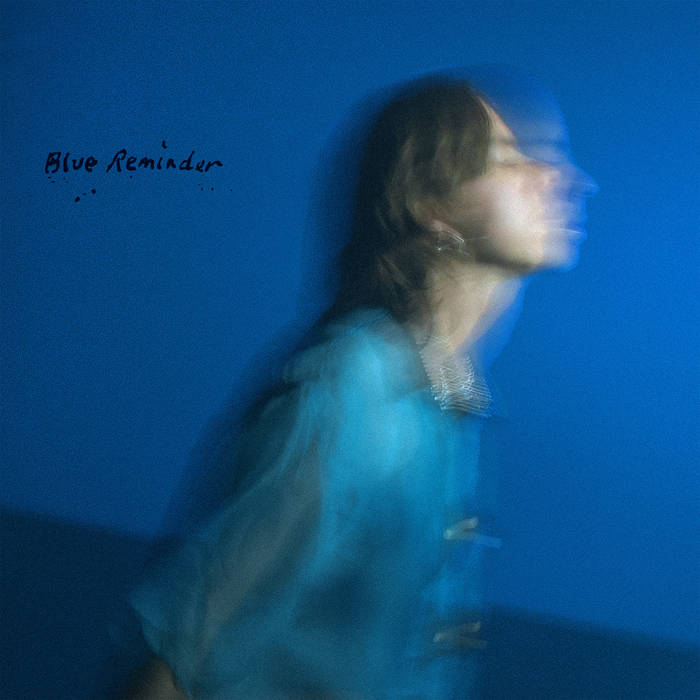 Blue Reminder, the latest Hand Habits album, traffics in co-existing extremes—in compartmentalized disasters and brief, vanishing optimism. Throughout its runtime, Meg Duffy explores how love and fear are always intertwined, and how you can’t fully experience one without the other. Many of the songs were born out of Duffy falling in love and fully stepping into their gender identity at the same time that gay and trans people are living through unprecedented state-backed hostility. Allowing yourself the capacity to feel love while you’re actively being persecuted against is its own paradox; to have love is to simultaneously hold a fear of losing it. In a Substack post announcing singles “Dead Rat” and “Jasmine Blossoms,” Duffy addressed these contradictions head-on: “It’s been challenging to feel excited about sharing new music in such an ever-evolving hellscape, as human rights are stripped away and we witness literal genocide on the same device I use to tell you about my songs and shows,” they wrote. “It’s not lost on me that many of you, like me, have little capacity for taking in new music or buying records. My only hope is, as always, my art can bring you a short intermission to the unfolding sorrow of the world we live in. Music does help me find a little joy, most of the time, and my wish is it helps you do that too. I think it’s important that we do try.” Blue Reminder finds Duffy looking at the emotional spectrum more realistically and with more grace. The bad will always be there (hence “reminder”), but the goal is to look beyond it. It’s a deliberate choice to insist on joy in a system designed to keep you fearful and threatened. —Cassidy Sollazzo [Fat Possum]
Blue Reminder, the latest Hand Habits album, traffics in co-existing extremes—in compartmentalized disasters and brief, vanishing optimism. Throughout its runtime, Meg Duffy explores how love and fear are always intertwined, and how you can’t fully experience one without the other. Many of the songs were born out of Duffy falling in love and fully stepping into their gender identity at the same time that gay and trans people are living through unprecedented state-backed hostility. Allowing yourself the capacity to feel love while you’re actively being persecuted against is its own paradox; to have love is to simultaneously hold a fear of losing it. In a Substack post announcing singles “Dead Rat” and “Jasmine Blossoms,” Duffy addressed these contradictions head-on: “It’s been challenging to feel excited about sharing new music in such an ever-evolving hellscape, as human rights are stripped away and we witness literal genocide on the same device I use to tell you about my songs and shows,” they wrote. “It’s not lost on me that many of you, like me, have little capacity for taking in new music or buying records. My only hope is, as always, my art can bring you a short intermission to the unfolding sorrow of the world we live in. Music does help me find a little joy, most of the time, and my wish is it helps you do that too. I think it’s important that we do try.” Blue Reminder finds Duffy looking at the emotional spectrum more realistically and with more grace. The bad will always be there (hence “reminder”), but the goal is to look beyond it. It’s a deliberate choice to insist on joy in a system designed to keep you fearful and threatened. —Cassidy Sollazzo [Fat Possum]
Read: “Hand Habits Finds a Blue Reminder Where Connection and Uncertainty Collide”
Hot Mulligan: The Sound a Body Makes When It’s Still
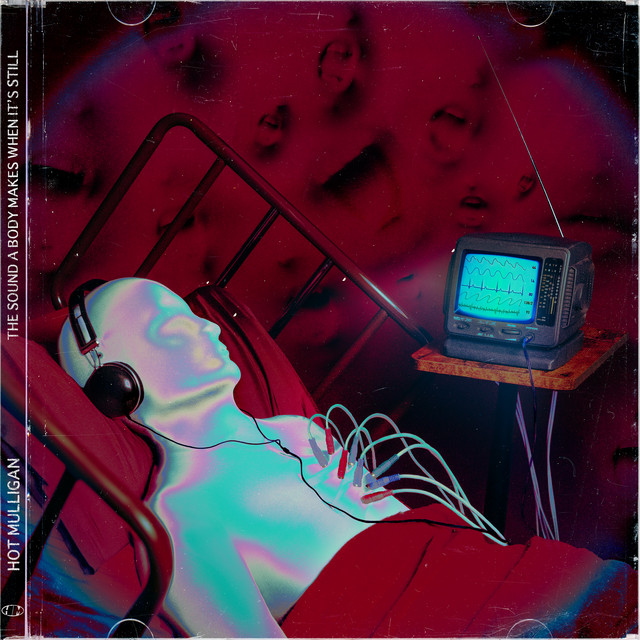 Much of Hot Mulligan’s music wrestles with the everyday fears of human existence, how being alive comes with numerous neuroses that feed on the general malaise of the world we inhabit. Throughlines such as grief, unhealthy coping mechanisms, and suicidal ideation permeate their songs like pollen in springtime. Those themes are salient as ever on The Sound a Body Makes When It’s Still, the Lansing, Michigan band’s fourth album. Halfway through its runtime, lead vocalist Nathan “Tades” Sanville mourns the death of a loved one. “Car parts littering the front lawn of the house you raised me in back in high school / The town falls apart, there’s nothing left familiar / Everything that meant anything broken down or it died,” goes its bridge, Sanville trading lines with Hot Mulligan’s other core songwriter, rhythm guitarist and co-vocalist Chris Freeman. Together, they paint a portrait of a hometown in ruins, a family member laid to rest, and harrowing regrets that leave our narrator with “shame dripping out of my skin.” Oh, and by the way, the name of this song is “Monica Lewinskibidi.” How about a highlight reel of some of my favorite song titles on the new Hot Mulligan record? Sure: “Let Me See Your Mounts”; “It Smells Like Fudge Axe in Here”; and, a feat in phonetic gymnastics, “Cream of Wheat of Feet Naw Cream of (feat).” In the five-piece’s nascent EP days, the band members would type haphazard things into their phones with AutoCorrect on, which resulted in nonsensical, random words strung together. But don’t think of it as a conscious effort to compartmentalize the latent sorrow of Sanville’s and Freeman’s lyrics. The shit-posty nature of their naming process is actually something like an unorthodox form of confrontation, and humor is their weapon. —Grant Sharples [Wax Bodega]
Much of Hot Mulligan’s music wrestles with the everyday fears of human existence, how being alive comes with numerous neuroses that feed on the general malaise of the world we inhabit. Throughlines such as grief, unhealthy coping mechanisms, and suicidal ideation permeate their songs like pollen in springtime. Those themes are salient as ever on The Sound a Body Makes When It’s Still, the Lansing, Michigan band’s fourth album. Halfway through its runtime, lead vocalist Nathan “Tades” Sanville mourns the death of a loved one. “Car parts littering the front lawn of the house you raised me in back in high school / The town falls apart, there’s nothing left familiar / Everything that meant anything broken down or it died,” goes its bridge, Sanville trading lines with Hot Mulligan’s other core songwriter, rhythm guitarist and co-vocalist Chris Freeman. Together, they paint a portrait of a hometown in ruins, a family member laid to rest, and harrowing regrets that leave our narrator with “shame dripping out of my skin.” Oh, and by the way, the name of this song is “Monica Lewinskibidi.” How about a highlight reel of some of my favorite song titles on the new Hot Mulligan record? Sure: “Let Me See Your Mounts”; “It Smells Like Fudge Axe in Here”; and, a feat in phonetic gymnastics, “Cream of Wheat of Feet Naw Cream of (feat).” In the five-piece’s nascent EP days, the band members would type haphazard things into their phones with AutoCorrect on, which resulted in nonsensical, random words strung together. But don’t think of it as a conscious effort to compartmentalize the latent sorrow of Sanville’s and Freeman’s lyrics. The shit-posty nature of their naming process is actually something like an unorthodox form of confrontation, and humor is their weapon. —Grant Sharples [Wax Bodega]
Read: “Hot Mulligan Trudge Through the Wreckage”
Hunx and His Punx: Walk Out On This World
 I choose not to share this with the band, but maybe four hours earlier on the day we speak, “Walk Out On This World,” which closes the new record, made me start crying as I relistened to the full album on a flight back home to New York from the Pacific Northwest. If you had told me when I was in high school, listening to those first three albums, that I would someday tear up listening to a Hunx and His Punx album of all things, I would not have believed you. Blame it on the strange emotional imbalance that strikes certain people at higher altitudes, but flying over such a wide stretch of the states amid such darkness on either end of my flight—not only in terms of climate-related disasters like the one that damaged Seth Bogart’s home, but the escalated, active displacement and mistreatment of community members in both mine and the Punx’s cities on opposite coasts in recent weeks—I let myself fold. I kept thinking back to tracks like The Seeds’ “Can’t Seem To Make You Mine,” in which almost every line delivery is followed by an outsized wail. Perhaps this is what even the kitschiest of hits from the ‘60s (and the tracks on Walk Out On This World) do so well: blowing frustration of all kinds up into their most dramatic, emotional form, allowing even the most unimaginable pain to emerge as something any listener can tap into. I think now about the records of that time period which I felt most drawn to as a weird teenager, who then felt drawn to Hunx as a project because it synthesized all of those highly specific cultural artifacts I cherished and it seemed no one I knew cared about, and it’s so clear to me how they took these very real shared agonies and elevated them to the loftiest of heights within a gorgeous relic of a pop song. —Elise Soutar [Get Better]
I choose not to share this with the band, but maybe four hours earlier on the day we speak, “Walk Out On This World,” which closes the new record, made me start crying as I relistened to the full album on a flight back home to New York from the Pacific Northwest. If you had told me when I was in high school, listening to those first three albums, that I would someday tear up listening to a Hunx and His Punx album of all things, I would not have believed you. Blame it on the strange emotional imbalance that strikes certain people at higher altitudes, but flying over such a wide stretch of the states amid such darkness on either end of my flight—not only in terms of climate-related disasters like the one that damaged Seth Bogart’s home, but the escalated, active displacement and mistreatment of community members in both mine and the Punx’s cities on opposite coasts in recent weeks—I let myself fold. I kept thinking back to tracks like The Seeds’ “Can’t Seem To Make You Mine,” in which almost every line delivery is followed by an outsized wail. Perhaps this is what even the kitschiest of hits from the ‘60s (and the tracks on Walk Out On This World) do so well: blowing frustration of all kinds up into their most dramatic, emotional form, allowing even the most unimaginable pain to emerge as something any listener can tap into. I think now about the records of that time period which I felt most drawn to as a weird teenager, who then felt drawn to Hunx as a project because it synthesized all of those highly specific cultural artifacts I cherished and it seemed no one I knew cared about, and it’s so clear to me how they took these very real shared agonies and elevated them to the loftiest of heights within a gorgeous relic of a pop song. —Elise Soutar [Get Better]
Jobber: Jobber to the Stars
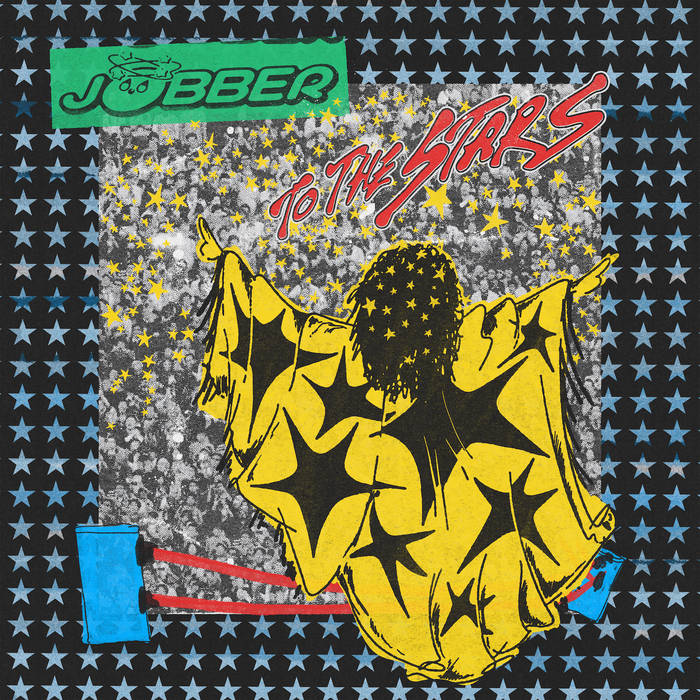 I like pro wrestling, and “disgraced rock n roll band” Jobber likes pro wrestling, too. Their debut EP, Hell In a Cell, featured titles like “Mankind,” “No Holds Barred,” and “Heel Turn,” and their debut album, Jobber To The Stars, retains the tradition with titles like “Summerslam,” “HHH,” “Raw Is War,” and “Clothesline From Hell.” But the Brooklyn band’s new music, like “Nightmare,” finds its inspirations in the Rentals’ “Waiting” more than the squared circle, though it could be a subtle reference to Cody Rhodes’ decision to leave the WWE for the indie circuit and, eventually, AEW. Fastened into panned guitar textures and a sugary vortex of hooks, “Nightmare” is guitarist/vocalist Kate Meizner’s attempt to capture a “feeling of paralysis” that comes from quitting your job and moving someplace new. Her singing and playing unravels with the fuzzy power-pop of early Weezer, and “Nightmare” locks into a distorted, widescreen groove that’ll split your head right down the middle and heave you over the top rope. Jobber is, to me, what makes a good gimmick work. Their music is larger than life. It’s believable. On “Clothesline From Hell,” “HHH,” and “Pillman’s Got a Gun,” wrestling is the baseline, but humanity is the ceiling. Inequity, consumerism—these ideas color Meizner’s stories, as she reckons with late-stage capitalism through the lens of men in tights. —Matt Mitchell [Exploding in Sound]
I like pro wrestling, and “disgraced rock n roll band” Jobber likes pro wrestling, too. Their debut EP, Hell In a Cell, featured titles like “Mankind,” “No Holds Barred,” and “Heel Turn,” and their debut album, Jobber To The Stars, retains the tradition with titles like “Summerslam,” “HHH,” “Raw Is War,” and “Clothesline From Hell.” But the Brooklyn band’s new music, like “Nightmare,” finds its inspirations in the Rentals’ “Waiting” more than the squared circle, though it could be a subtle reference to Cody Rhodes’ decision to leave the WWE for the indie circuit and, eventually, AEW. Fastened into panned guitar textures and a sugary vortex of hooks, “Nightmare” is guitarist/vocalist Kate Meizner’s attempt to capture a “feeling of paralysis” that comes from quitting your job and moving someplace new. Her singing and playing unravels with the fuzzy power-pop of early Weezer, and “Nightmare” locks into a distorted, widescreen groove that’ll split your head right down the middle and heave you over the top rope. Jobber is, to me, what makes a good gimmick work. Their music is larger than life. It’s believable. On “Clothesline From Hell,” “HHH,” and “Pillman’s Got a Gun,” wrestling is the baseline, but humanity is the ceiling. Inequity, consumerism—these ideas color Meizner’s stories, as she reckons with late-stage capitalism through the lens of men in tights. —Matt Mitchell [Exploding in Sound]
Jon Batiste: Big Money
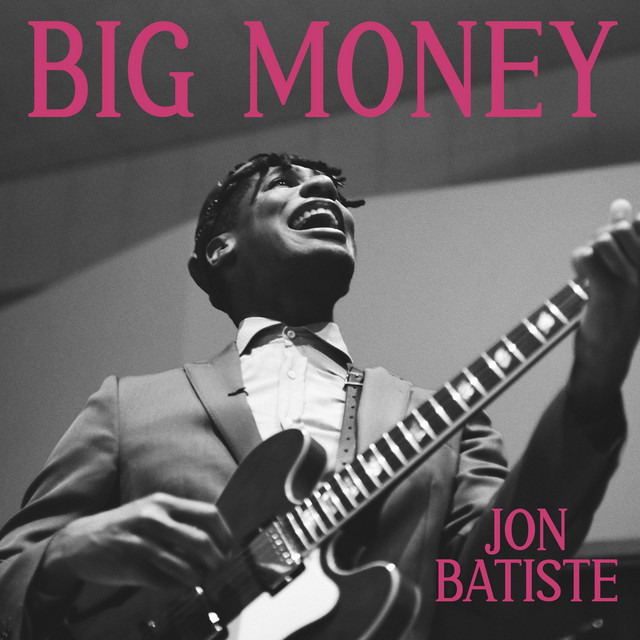 Jon Batiste strikes a balance between the academic and the animated. His songs tumble out of trees planted by his elders; he remakes primitive concepts into futuristic touchstones. Just last year, he released Beethoven Blues, a transformation of classical music and exploration of the universal truths it elicits—the laughter and tears that live in the DNA of music spanning ancestries. In the presence of people searching for refuge in tradition and structure, he has penned some of the most necessary works of his generation, and his new album, BIG MONEY, is the best thing he’s ever done. Rather than resting on the same heavy, collaborative highs he chased on WE ARE and World Music Radio, Batiste largely sits by himself on BIG MONEY, an album that germinated after a sold-out, headlining show at Nashville’s Ryman Auditorium in 2024. With featured production from No ID, whose recent collaborative album with Saba is already a favorite record of mine, Batiste becomes unglued and reborn on “PINNACLE,” “AT ALL,” “ANGELS,” and the foot-stomping, church-rattling title track. Caught someplace between Duke Ellington, the Meters, and Son House, dance music is BIG MONEY’s ultimate throughline yet sacrificed in small doses for standstill piano ballads like “LONELY AVENUE” and “MAYBE.” And, after calling upon the efforts of Academy Award-nominated, Grammy-winning singer-actress Andra Day, “LEAN ON MY LOVE” is a powerful opener that will put you upright. It’s also the most infectious song Batiste has ever penned. —Matt Mitchell [Verve/Interscope]
Jon Batiste strikes a balance between the academic and the animated. His songs tumble out of trees planted by his elders; he remakes primitive concepts into futuristic touchstones. Just last year, he released Beethoven Blues, a transformation of classical music and exploration of the universal truths it elicits—the laughter and tears that live in the DNA of music spanning ancestries. In the presence of people searching for refuge in tradition and structure, he has penned some of the most necessary works of his generation, and his new album, BIG MONEY, is the best thing he’s ever done. Rather than resting on the same heavy, collaborative highs he chased on WE ARE and World Music Radio, Batiste largely sits by himself on BIG MONEY, an album that germinated after a sold-out, headlining show at Nashville’s Ryman Auditorium in 2024. With featured production from No ID, whose recent collaborative album with Saba is already a favorite record of mine, Batiste becomes unglued and reborn on “PINNACLE,” “AT ALL,” “ANGELS,” and the foot-stomping, church-rattling title track. Caught someplace between Duke Ellington, the Meters, and Son House, dance music is BIG MONEY’s ultimate throughline yet sacrificed in small doses for standstill piano ballads like “LONELY AVENUE” and “MAYBE.” And, after calling upon the efforts of Academy Award-nominated, Grammy-winning singer-actress Andra Day, “LEAN ON MY LOVE” is a powerful opener that will put you upright. It’s also the most infectious song Batiste has ever penned. —Matt Mitchell [Verve/Interscope]
Read: “Jon Batiste: Deep Music Presented Simply”
Judy Blank: Big Mood
 I suppose I’m biased towards Judy Blank’s music, after watching her rile up the house at our SXSW party in March. The Nashville-via-Utrecht songwriter has been on my mind ever since, and Big Mood, Blank’s first album in seven years, is a countrypolitan portal into eclectic textures of bop, folk, and electronica. “Pony” is the antidote for my yearning heart, a song Blank calls a “chaotic anthem for anyone stuck between craving someone and cutting them loose.” True to her own word, the song is loud and confident, as she sings in bold-faced text and her band—Roy van Rosendaal, Mischa Porte, Pieter Zaal, and Stefan Wolfs—splashes the sound barrier with an indie-popified hue of alt-country color. “Pony” is giving Julia Jacklin but with a dose of the Chicks. It’s not only fabulously Judy Blank, but it’s one of this year’s catchiest rock tracks yet. You’d be crazy not to crave a thousand more songs exactly like it. Good news: Big Mood will give you a dozen. —Matt Mitchell [Rounder Records]
I suppose I’m biased towards Judy Blank’s music, after watching her rile up the house at our SXSW party in March. The Nashville-via-Utrecht songwriter has been on my mind ever since, and Big Mood, Blank’s first album in seven years, is a countrypolitan portal into eclectic textures of bop, folk, and electronica. “Pony” is the antidote for my yearning heart, a song Blank calls a “chaotic anthem for anyone stuck between craving someone and cutting them loose.” True to her own word, the song is loud and confident, as she sings in bold-faced text and her band—Roy van Rosendaal, Mischa Porte, Pieter Zaal, and Stefan Wolfs—splashes the sound barrier with an indie-popified hue of alt-country color. “Pony” is giving Julia Jacklin but with a dose of the Chicks. It’s not only fabulously Judy Blank, but it’s one of this year’s catchiest rock tracks yet. You’d be crazy not to crave a thousand more songs exactly like it. Good news: Big Mood will give you a dozen. —Matt Mitchell [Rounder Records]
Nourished by Time: The Passionate Ones
 Though each Nourished by Time release has dealt with these same concerns—throwing oneself fully into their art and relationships despite the factors that hold them back from maintaining that dedication, primarily late-stage capitalism—The Passionate Ones feels like Marcus Brown’s most considered, elaborate expression of these personal and communal fears. These stakes had been established right out of the gate with the record’s three singles, the first of which, “Max Potential,” crescendos and crashes over crystalline synths and pitched-up vocal samples as it beseeches a love interest who can’t even summon a faint facsimile of Brown’s devotion: “There’s no reason for your call if I can’t call on you / You’re not passionate at all, and that’s all on you.” This perceived lack of passion is juxtaposed with an empathetic tribute to a friend balancing his artistic pursuits with the stress of his day job on “9 2 5,” a glittering deep house track that drips with tenderness under its full-throttle beat. Given that Brown was in a similar situation to the one depicted until only a few months ago, according to his own introduction on the promotional livestream, the lyrics read as a blessing from one gig worker to another, warning against the perils he might encounter as he tries to curtail the struggle: “May you always have a fight, be it wrong or be it right / Shed a raindrop when you cry, but beware of sedatives and passing time.” Dependence—or rather, being driven to dependence by dire economic circumstances—is a theme Brown returns to on “Jojo,” which features British rapper and producer Tony Bontana, one of the album’s few collaborative efforts, as well as on third single “BABY BABY.” The latter track is sardonic and musically erratic, bouncing from class-conscious rap verses (“Buy anything, just buy it fucking often / Yeah, turn your fucking brain off, operation brainwash / If we all strike right now, the gravy train stops”) to a wiry surf-guitar breakdown, toggling between each mode at a breakneck pace to mimic the economy of distraction in which we find ourselves mired in. Each movement is staggeringly inventive in its own right, even as it’s whizzing by you. You can hear the smile in Brown’s voice as he yells the correctly capitalized title at the end of each verse, and the sheer magnetism packed within the delivery of that one word carries enough charm to draft even the most skeptical listener into the album’s fictional cult, regardless of their thoughts on socialist praxis. —Elise Soutar [XL]
Though each Nourished by Time release has dealt with these same concerns—throwing oneself fully into their art and relationships despite the factors that hold them back from maintaining that dedication, primarily late-stage capitalism—The Passionate Ones feels like Marcus Brown’s most considered, elaborate expression of these personal and communal fears. These stakes had been established right out of the gate with the record’s three singles, the first of which, “Max Potential,” crescendos and crashes over crystalline synths and pitched-up vocal samples as it beseeches a love interest who can’t even summon a faint facsimile of Brown’s devotion: “There’s no reason for your call if I can’t call on you / You’re not passionate at all, and that’s all on you.” This perceived lack of passion is juxtaposed with an empathetic tribute to a friend balancing his artistic pursuits with the stress of his day job on “9 2 5,” a glittering deep house track that drips with tenderness under its full-throttle beat. Given that Brown was in a similar situation to the one depicted until only a few months ago, according to his own introduction on the promotional livestream, the lyrics read as a blessing from one gig worker to another, warning against the perils he might encounter as he tries to curtail the struggle: “May you always have a fight, be it wrong or be it right / Shed a raindrop when you cry, but beware of sedatives and passing time.” Dependence—or rather, being driven to dependence by dire economic circumstances—is a theme Brown returns to on “Jojo,” which features British rapper and producer Tony Bontana, one of the album’s few collaborative efforts, as well as on third single “BABY BABY.” The latter track is sardonic and musically erratic, bouncing from class-conscious rap verses (“Buy anything, just buy it fucking often / Yeah, turn your fucking brain off, operation brainwash / If we all strike right now, the gravy train stops”) to a wiry surf-guitar breakdown, toggling between each mode at a breakneck pace to mimic the economy of distraction in which we find ourselves mired in. Each movement is staggeringly inventive in its own right, even as it’s whizzing by you. You can hear the smile in Brown’s voice as he yells the correctly capitalized title at the end of each verse, and the sheer magnetism packed within the delivery of that one word carries enough charm to draft even the most skeptical listener into the album’s fictional cult, regardless of their thoughts on socialist praxis. —Elise Soutar [XL]
Read: “Nourished by Time Is Possessed”
TOPS: Bury the Key
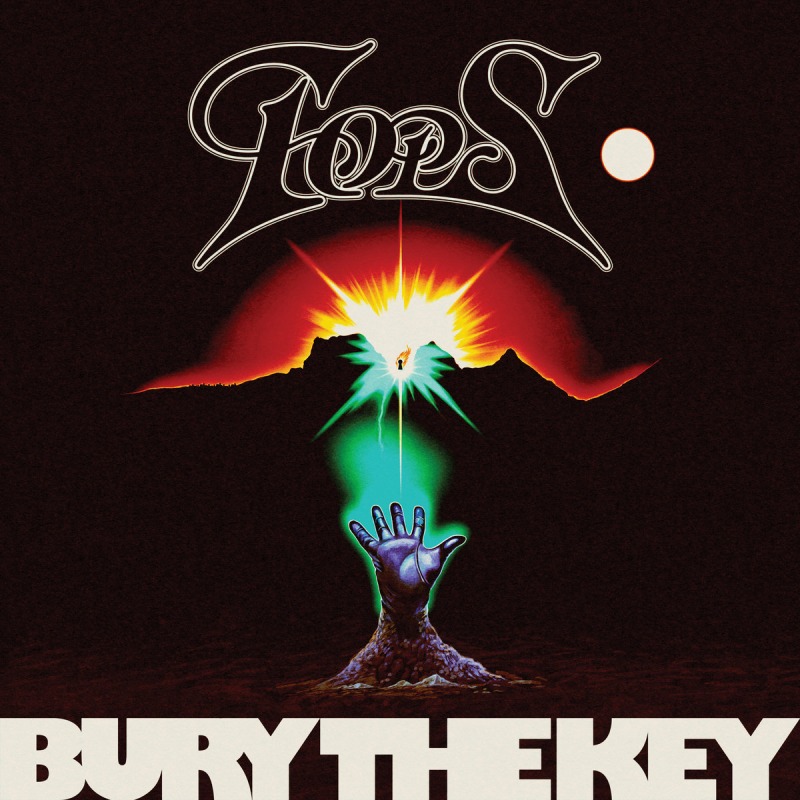 Bury the Key sings of renewal and hunger, making it a worthy comeback from TOPS, who’ve made great, left-of-center pop, disco, and post-punk music since unleashing Tender Opposites onto the world 13 years ago. It helps that the members’ respective solo endeavors gave them fresh, much-needed perspectives. After all, Marta Cikojevic did make one of the better pop debuts of this decade so far, and Surfacing‘s chameleonic, electronic strata undoubtedly made Jane Penny a better curator. Bury the Key comes with a lot of change, but the band’s mindset toward music has remained the same from day one. “David [Carriere] has a mentality of showing up every day for music making and just doing that. I think that’s ultimately a really important approach,” Penny explains. “There are these songwriting situations where people will try to crank out a song in a day, and that’s never been our mentality. I think it’s best if you work as hard as possible, but don’t force anything to come to a conclusion, it has the best results. It’s kind of the most frustrating and hardest method, but I think it’s the only way to have consistently authentic songwriting. People tend to be really results focused and I think that doesn’t work in music. Something gets lost. If you’re just trying to get to an end, you’re skipping everything that’s gonna make the end good.” Though 2020’s I Feel Alive was shaped by sunny synthesizers and a driving, indie-rock disposition, the band wanted to do something different this time. They thought stepping into a new sound by “channeling the world” around them would be the best way to do just that. “When we made the record, I felt this general feeling of uncertainty in the world and a sense of increased radicalization,” Penny says. —Camryn Teder [Ghostly International]
Bury the Key sings of renewal and hunger, making it a worthy comeback from TOPS, who’ve made great, left-of-center pop, disco, and post-punk music since unleashing Tender Opposites onto the world 13 years ago. It helps that the members’ respective solo endeavors gave them fresh, much-needed perspectives. After all, Marta Cikojevic did make one of the better pop debuts of this decade so far, and Surfacing‘s chameleonic, electronic strata undoubtedly made Jane Penny a better curator. Bury the Key comes with a lot of change, but the band’s mindset toward music has remained the same from day one. “David [Carriere] has a mentality of showing up every day for music making and just doing that. I think that’s ultimately a really important approach,” Penny explains. “There are these songwriting situations where people will try to crank out a song in a day, and that’s never been our mentality. I think it’s best if you work as hard as possible, but don’t force anything to come to a conclusion, it has the best results. It’s kind of the most frustrating and hardest method, but I think it’s the only way to have consistently authentic songwriting. People tend to be really results focused and I think that doesn’t work in music. Something gets lost. If you’re just trying to get to an end, you’re skipping everything that’s gonna make the end good.” Though 2020’s I Feel Alive was shaped by sunny synthesizers and a driving, indie-rock disposition, the band wanted to do something different this time. They thought stepping into a new sound by “channeling the world” around them would be the best way to do just that. “When we made the record, I felt this general feeling of uncertainty in the world and a sense of increased radicalization,” Penny says. —Camryn Teder [Ghostly International]
Read: “How TOPS Went Pro Mode”
Water From Your Eyes: It’s A Beautiful Place
 It’s a Beautiful Place makes disenchantment feel as grandiose and overwhelming as falling out of love. Unlike the breathy lightness of “Nights in Armor” or the unstoppable momentum of “Life Signs,” “Born 2” trudges on with its piles of heavy guitars, crashing drums, and vocals gradually getting buried underneath the crescendo of noise. The track is a fizzy, reverberating mountain of frustration. Lyrically, it captures this internal conflict of both loving and loathing one’s home spectacularly, composing stanzas to highlight all the contradictions in the world’s DNA (“The world is so common / And born to become something else” and “Born far beyond / The world is a paradise / Yeah born to belong”). Rachel Brown’s soft vocals waver on the sustained notes, dragging out the word “beautiful” to accentuate how hard it is to admit one’s disappointment with life. The penultimate track, “Blood on the Dollar,” carries on similarly, capturing exhaustion through Brown’s timid whimpering to a simple drum beat and slow, guitar-led alt-rock tune. “Playing Classics” is another highlight of the record, serving as a modern, uber-cool dance track that invites at least several repeats. It’s bare-boned and minimal in sound, at least compared to the warblier, synthesized-to-the-max songs like “Spaceship.” Instead, “Playing Classics” focuses on the simple snaps and shimmers that make a solid hit. Musically, it presents the club as a dazzling, cathartic haven, building around Nate Amos’ disco-punk guitar riff with the thumps of the beat and Brown’s cool, nonchalant talk-singing that harkens back to the electroclash takeover of NYC’s nightlife scene in the ’90s and early ‘00s. Even in the lyrics, Brown recognizes the allure of this city, acknowledging that, for bored people inside or outside the state, there’s nowhere else to go that’s comparable. “You’re in debt or well, you’re nothing at all,” one of the more amusing lines written from the perspective of an outsider goes, “tried to make it to hereafter, just wound up at the mall.” —Vic Borlando [Matador]
It’s a Beautiful Place makes disenchantment feel as grandiose and overwhelming as falling out of love. Unlike the breathy lightness of “Nights in Armor” or the unstoppable momentum of “Life Signs,” “Born 2” trudges on with its piles of heavy guitars, crashing drums, and vocals gradually getting buried underneath the crescendo of noise. The track is a fizzy, reverberating mountain of frustration. Lyrically, it captures this internal conflict of both loving and loathing one’s home spectacularly, composing stanzas to highlight all the contradictions in the world’s DNA (“The world is so common / And born to become something else” and “Born far beyond / The world is a paradise / Yeah born to belong”). Rachel Brown’s soft vocals waver on the sustained notes, dragging out the word “beautiful” to accentuate how hard it is to admit one’s disappointment with life. The penultimate track, “Blood on the Dollar,” carries on similarly, capturing exhaustion through Brown’s timid whimpering to a simple drum beat and slow, guitar-led alt-rock tune. “Playing Classics” is another highlight of the record, serving as a modern, uber-cool dance track that invites at least several repeats. It’s bare-boned and minimal in sound, at least compared to the warblier, synthesized-to-the-max songs like “Spaceship.” Instead, “Playing Classics” focuses on the simple snaps and shimmers that make a solid hit. Musically, it presents the club as a dazzling, cathartic haven, building around Nate Amos’ disco-punk guitar riff with the thumps of the beat and Brown’s cool, nonchalant talk-singing that harkens back to the electroclash takeover of NYC’s nightlife scene in the ’90s and early ‘00s. Even in the lyrics, Brown recognizes the allure of this city, acknowledging that, for bored people inside or outside the state, there’s nowhere else to go that’s comparable. “You’re in debt or well, you’re nothing at all,” one of the more amusing lines written from the perspective of an outsider goes, “tried to make it to hereafter, just wound up at the mall.” —Vic Borlando [Matador]
Read: “Water From Your Eyes Submit to the Universe”
Winter: Adult Romantix
 Samira Winter grew up in Curitiba, to an American father and a Brazilian mother. She has never shied away from connecting her Brazilian roots to her music, as she previously released an album written fully in Portuguese in collaboration with Triptides, titled Estela Mágica. In Adult Romantix, she brings her native language into “Without You” and “Candy #9,” making the tracks feel even more personal. The musician recently penned an essay for Clash on her multi-cultural upbringing, where she wrote that there were times growing up when she felt too American in Brazil and not American enough in the U.S. As someone who had a similar experience growing up in Puerto Rico to a mother who is a quarter American, her words resonated with me. That disconnect can be even more apparent when you grow up in a country that holds conservative, traditional values as someone within the queer umbrella. Over the years, Winter’s music has significantly evolved, starting out with twee, twinkling jangle pop before becoming part of the new generation of shoegazers. But with Adult Romantix, Winter ascends in her artistry, combining all sides of herself to create an album that goes bigger and bolder than before. It’s the kind of record that makes you feel like a teenager again, with songs about wistfully listening to Liz Phair in your bedroom while drunk and stoned after a night out, fantasizing about falling in love (“Just Like a Flower”), keeping an unwavering romantic spirit with rose-tinted glasses (“The Beach”), and the longing for someone she can’t be with anymore (“Without You”). It calls back to that moment in time when your feelings feel so visceral that they consume you, with intense highs and lows. —Tatiana Tenreyro [Winspear]
Samira Winter grew up in Curitiba, to an American father and a Brazilian mother. She has never shied away from connecting her Brazilian roots to her music, as she previously released an album written fully in Portuguese in collaboration with Triptides, titled Estela Mágica. In Adult Romantix, she brings her native language into “Without You” and “Candy #9,” making the tracks feel even more personal. The musician recently penned an essay for Clash on her multi-cultural upbringing, where she wrote that there were times growing up when she felt too American in Brazil and not American enough in the U.S. As someone who had a similar experience growing up in Puerto Rico to a mother who is a quarter American, her words resonated with me. That disconnect can be even more apparent when you grow up in a country that holds conservative, traditional values as someone within the queer umbrella. Over the years, Winter’s music has significantly evolved, starting out with twee, twinkling jangle pop before becoming part of the new generation of shoegazers. But with Adult Romantix, Winter ascends in her artistry, combining all sides of herself to create an album that goes bigger and bolder than before. It’s the kind of record that makes you feel like a teenager again, with songs about wistfully listening to Liz Phair in your bedroom while drunk and stoned after a night out, fantasizing about falling in love (“Just Like a Flower”), keeping an unwavering romantic spirit with rose-tinted glasses (“The Beach”), and the longing for someone she can’t be with anymore (“Without You”). It calls back to that moment in time when your feelings feel so visceral that they consume you, with intense highs and lows. —Tatiana Tenreyro [Winspear]
Read: “The Summer of Winter”
Other Notable New Album Releases This Week: Earl Sweatshirt: Live Love Laugh; Deftones: Private Music; Double Wish: Double Wish; Ghostface Killah: Supreme Clientele 2; Kathleen Edwards: Billionaire; Kid Cudi: FREE; Laufey: A Matter of Time; Mac DeMarco: Guitar; Pino Palladino & Blake Mills: That Wasn’t A Dream; Royel Otis: hickey; sombr: I Barely Know Her; Superchunk: Songs in the Key of Yikes; The World Is A Beautiful Place And I Am No Longer Afraid To Die: Dreams of Being Dust; Wolf Alice: The Clearing


















